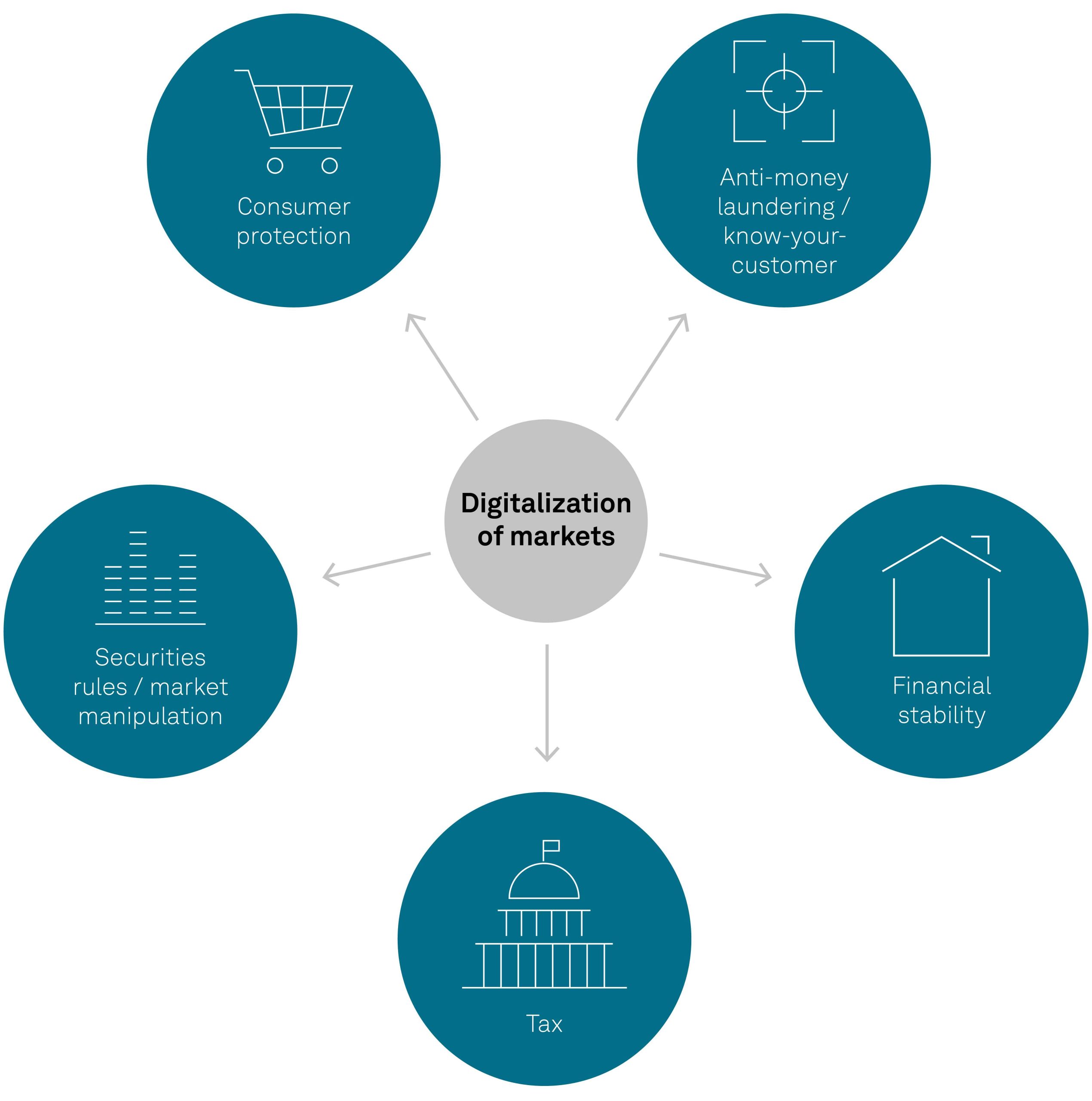Regulatory Challenges for DeFi Platforms

- Understanding the regulatory landscape for DeFi platforms
- Challenges posed by decentralized nature of DeFi platforms
- Compliance issues faced by DeFi platforms in various jurisdictions
- Regulatory uncertainty and its impact on DeFi projects
- Potential solutions for navigating regulatory challenges in DeFi
- The role of self-regulation in the DeFi ecosystem
Understanding the regulatory landscape for DeFi platforms
Understanding the regulatory landscape for decentralized finance (DeFi) platforms is crucial for their long-term success and sustainability. DeFi platforms operate in a rapidly evolving regulatory environment, with regulators around the world grappling with how to classify and oversee these innovative financial technologies.
One of the key challenges facing DeFi platforms is the lack of clarity and consistency in regulatory frameworks. Regulators are still in the process of determining how to apply existing laws and regulations to DeFi platforms, which often operate across borders and outside of traditional financial systems.
Regulatory bodies are concerned about the potential risks associated with DeFi platforms, including money laundering, fraud, and market manipulation. As a result, they are exploring ways to regulate these platforms to protect investors and maintain the integrity of the financial system.
DeFi platforms must navigate this complex regulatory landscape to ensure compliance with applicable laws and regulations. They may need to implement know-your-customer (KYC) and anti-money laundering (AML) procedures, as well as obtain licenses or approvals from regulatory authorities.
Overall, understanding and adapting to the regulatory challenges facing DeFi platforms is essential for their continued growth and mainstream adoption. By working closely with regulators and proactively addressing compliance issues, DeFi platforms can build trust with users and investors, ultimately leading to a more sustainable and resilient ecosystem.
Challenges posed by decentralized nature of DeFi platforms
The decentralized nature of DeFi platforms presents a unique set of challenges when it comes to regulation. One of the main issues is the difficulty in identifying the responsible parties behind these platforms. Unlike traditional financial institutions, DeFi platforms operate without a central authority, making it challenging for regulators to hold anyone accountable in case of misconduct.
Another challenge is the cross-border nature of DeFi platforms, which can make it difficult for regulators to enforce compliance with local laws and regulations. This lack of jurisdictional clarity can create loopholes that bad actors may exploit, leading to potential risks for investors and the financial system as a whole.
Moreover, the rapid pace of innovation in the DeFi space means that regulations often struggle to keep up with new developments. This can create uncertainty for both developers and users of DeFi platforms, as they may not know how their activities will be treated under the law.
Overall, the decentralized nature of DeFi platforms poses significant challenges for regulators in terms of enforcement, jurisdiction, and keeping pace with technological advancements. Finding a balance between fostering innovation and protecting investors will be crucial in addressing these regulatory challenges effectively.
Compliance issues faced by DeFi platforms in various jurisdictions
DeFi platforms face a myriad of compliance issues when operating in different jurisdictions around the world. These challenges stem from the lack of clear regulatory frameworks governing decentralized finance, leading to uncertainty and potential legal risks for platform operators.
In the United States, DeFi platforms must navigate a complex web of federal and state regulations, including securities laws, anti-money laundering (AML) requirements, and know your customer (KYC) rules. Failure to comply with these regulations can result in hefty fines and even criminal charges.
Similarly, in the European Union, DeFi platforms are subject to the Markets in Financial Instruments Directive (MiFID) and the General Data Protection Regulation (GDPR), among other regulations. Ensuring compliance with these rules is essential to avoid regulatory scrutiny and maintain the trust of users.
Meanwhile, in Asia, DeFi platforms must contend with a patchwork of regulations across different countries. For example, in China, the government has cracked down on cryptocurrency trading and initial coin offerings (ICOs), creating uncertainty for DeFi projects operating in the country.
Overall, the regulatory landscape for DeFi platforms is constantly evolving, requiring operators to stay abreast of changes in regulations and adapt their compliance practices accordingly. By proactively addressing compliance issues, DeFi platforms can mitigate legal risks and build a solid foundation for long-term success.
Regulatory uncertainty and its impact on DeFi projects
Regulatory uncertainty is a significant challenge facing DeFi projects in the current landscape. The lack of clear guidelines and regulations from governing bodies creates a sense of instability within the decentralized finance sector. This uncertainty can hinder the growth and development of DeFi platforms, as developers and investors may be hesitant to engage with projects that operate in a legal gray area.
One of the main impacts of regulatory uncertainty on DeFi projects is the potential for increased risk. Without clear regulations to follow, developers may inadvertently violate laws or regulations, leading to legal repercussions. This risk can deter both developers and users from participating in DeFi platforms, limiting the potential for innovation and growth within the sector.
Furthermore, regulatory uncertainty can also impact the ability of DeFi projects to attract investment. Investors may be wary of committing funds to projects that operate in a regulatory gray area, as the potential for legal challenges or shutdowns could jeopardize their investments. This lack of investment can stifle the growth of DeFi platforms and limit their ability to scale and reach a wider audience.
In order to address the challenges posed by regulatory uncertainty, DeFi projects must work proactively to engage with regulators and policymakers. By advocating for clear and fair regulations that support innovation and growth within the sector, DeFi platforms can help create a more stable and secure environment for developers, investors, and users alike. Collaboration between the DeFi community and regulatory bodies is essential to ensure the long-term success and sustainability of decentralized finance projects.
Potential solutions for navigating regulatory challenges in DeFi
When it comes to navigating regulatory challenges in the realm of decentralized finance (DeFi), there are several potential solutions that platforms can consider implementing. These solutions can help DeFi platforms stay compliant with regulations while still offering innovative financial services to users.
- **Transparency**: One potential solution is to prioritize transparency in all operations. By providing clear and detailed information about how the platform operates, DeFi platforms can build trust with regulators and demonstrate their commitment to compliance.
- **Compliance Tools**: Another solution is to invest in compliance tools that can help automate regulatory processes. These tools can help DeFi platforms stay up to date with changing regulations and ensure that they are following all necessary guidelines.
- **Engagement with Regulators**: Engaging with regulators in a proactive and transparent manner can also be an effective solution. By working closely with regulatory bodies, DeFi platforms can gain a better understanding of compliance requirements and potentially influence the development of future regulations.
- **Legal Counsel**: Seeking guidance from legal counsel who specialize in DeFi and regulatory compliance can provide valuable insights and help platforms navigate complex regulatory landscapes.
- **Education and Training**: Finally, investing in education and training for team members can help ensure that everyone at the platform is aware of regulatory requirements and knows how to comply with them.
By implementing these potential solutions, DeFi platforms can better navigate regulatory challenges and continue to innovate in the rapidly evolving world of decentralized finance.
The role of self-regulation in the DeFi ecosystem
Self-regulation plays a crucial role in the decentralized finance (DeFi) ecosystem, as it allows platforms to establish guidelines and standards for their operations without direct government intervention. By implementing self-regulatory measures, DeFi platforms can demonstrate their commitment to maintaining transparency, security, and integrity within the ecosystem.
One way in which self-regulation is enforced in the DeFi space is through the use of smart contracts. These self-executing contracts are programmed to automatically enforce predefined rules and conditions, reducing the need for manual oversight and intervention. This not only streamlines processes but also helps to mitigate the risk of fraud and manipulation.
Additionally, DeFi platforms often rely on community governance mechanisms to make decisions collectively. Through voting and consensus mechanisms, platform users can propose and vote on changes to protocols, ensuring that the platform evolves in a way that aligns with the interests of its stakeholders.
While self-regulation can be effective in promoting trust and accountability within the DeFi ecosystem, it is not without its challenges. One of the main concerns is the lack of uniformity in self-regulatory practices across different platforms, which can lead to inconsistencies and gaps in oversight. To address this issue, industry participants are exploring the development of industry-wide standards and best practices to promote greater consistency and coherence in self-regulatory efforts.
